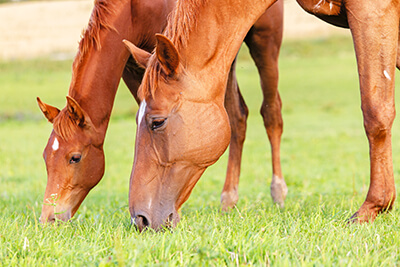By: Maddie Schueler, JD, LLM | mschueler@deandorton.com
Like most states, Kentucky imposes a sales tax on the retail sale of tangible personal property, digital property, and some services. Kentucky also imposes a complementary use tax on the storage, use, or other consumption of taxable property in the state if no sales tax was paid to Kentucky when the property was purchased.
To achieve various policy objectives, the General Assembly has enacted multiple sales and use tax exemptions. The goal of many of these exemptions is to encourage the development and continuation of industries important to the Commonwealth. This article explores basics about how sales and use taxes apply to two major industries in the state—manufacturing and equine.
The Manufacturing Industry
https://deandorton.com/wp-content/uploads/2019/12/Manufacturing-landscape.jpg
Manufacturers’ products sold to end users normally are subject to sales tax in the state where the product is shipped or delivered. The sales tax on a transaction generally is collected by the seller from the purchaser. Specific exemptions may cause the sale to be nontaxable. Because manufacturers typically sell to distributors or retailers who acquire property for resale, manufacturers’ sales often are nontaxable.
When manufacturers buy property for use in their manufacturing process in Kentucky, favorable sales tax treatment is tied to two major exemptions: (1) the exemption for materials, supplies, and industrial tools and (2) the exemption for machinery for new and expanded industry.
Materials that become part of a manufactured product, as well as supplies and industrial tools that are “used up” during the manufacturing process, are exempt from tax because tax ultimately will be collected when the final product is sold to the end user. All materials that enter into and become an ingredient or component part of the manufactured product are exempt from tax. Supplies and industrial tools must be “directly used in manufacturing” and have a useful life of less than one year to qualify for exemption. Notably, the exemption does not apply to repair, replacement, or spare parts.
The exemption for machinery for new and expanded industry permits manufacturers to purchase certain machinery without paying sales or use tax. For an item to qualify for exemption, it generally must meet four requirements:
Be machinery;
Be used directly in the manufacturing process;
Be incorporated for the first time into plant facilities established in Kentucky; and
Not replace other machinery.
A caveat applies to the fourth requirement: new machinery that replaces other machinery qualifies for exemption if it performs a different function, manufactures a different product, or has a greater productive capacity than the machinery being replaced.
The Equine Industry
https://deandorton.com/wp-content/uploads/2019/12/Winter-farm.jpg
Breeding a horse involves producing a product, not unlike manufacturing. The mare may be thought of as “production equipment,” with the stallion’s contribution to the process being “raw material.” So, in what ways is breeding horses subjected to or not subjected to sales tax in a similar manner to manufacturing?
Sales in Kentucky of horses less than two years old at the time of sale are exempt from tax if the purchaser is a nonresident of Kentucky. A nonresident includes both an individual who is not a resident of Kentucky and a business that is not commercially domiciled in the Commonwealth. Sales of horses which are bought for resale also are nontaxable.
Horses, or interests or shares in horses, bought for breeding purposes only are exempt from sales or use tax in Kentucky. However, fees paid to breed to a stallion in Kentucky are subject to sales tax.
Kentucky sales tax law includes numerous general agricultural exemptions, but many do not apply to the equine industry. For example, Kentucky exempts from tax feed, farm machinery, and on-farm facilities. However, all of these exemptions apply in the context of raising “livestock,” which under Kentucky law excludes horses.
In Summary
In summary, both similarities and differences exist in how Kentucky applies its sale and use tax law to manufacturers, in general, and to horse breeders, who also produce items of tangible personal property.
